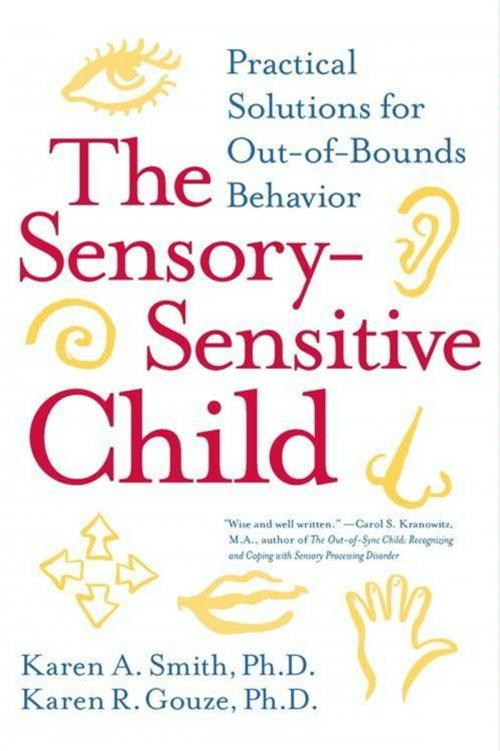The Sensory-Sensitive Child
Practical Solutions for Out-of-Bounds Behavior
Nonfiction, Family & Relationships, Parenting, Special Needs, Health & Well Being, Psychology, Child & Adolescent, Child Development| Author: | Karen A. Smith PhD, Karen R. Gouze PhD | ISBN: | 9780061751479 |
| Publisher: | HarperCollins e-books | Publication: | March 17, 2009 |
| Imprint: | HarperCollins e-books | Language: | English |
| Author: | Karen A. Smith PhD, Karen R. Gouze PhD |
| ISBN: | 9780061751479 |
| Publisher: | HarperCollins e-books |
| Publication: | March 17, 2009 |
| Imprint: | HarperCollins e-books |
| Language: | English |
In a book likely to transform how parents manage many of their child's daily struggles, Drs. Smith and Gouze explain the central and frequently unrecognized role that sensory processing problems play in a child's emotional and behavioral difficulties. Practicing child psychologists, and themselves parents of children with sensory integration problems, their message is innovative, practical, and, above all, full of hope.
A child with sensory processing problems overreacts or underreacts to sensory experiences most of us take in stride. A busy classroom, new clothes, food smells, sports activities, even hugs can send such a child spinning out of control. The result can be heartbreaking: battles over dressing, bathing, schoolwork, social functions, holidays, and countless other events. In addition, the authors say, many childhood psychiatric disorders may have an unidentified sensory component.
Readers Will Learn:
- The latest scientific knowledge about sensory integration
- How to recognize sensory processing problems in children and evaluate the options for treatment
- How to prevent conflicts by viewing the child's world through a "sensory lens"
- Strategies for handling sensory integration challenges at home, at school, and in twenty-first century kid culture
The result: a happier childhood, a more harmonious family, and a more cooperative classroom. This thoroughly researched, useful, and compassionate guide will help families start on a new path of empowerment and success.
In a book likely to transform how parents manage many of their child's daily struggles, Drs. Smith and Gouze explain the central and frequently unrecognized role that sensory processing problems play in a child's emotional and behavioral difficulties. Practicing child psychologists, and themselves parents of children with sensory integration problems, their message is innovative, practical, and, above all, full of hope.
A child with sensory processing problems overreacts or underreacts to sensory experiences most of us take in stride. A busy classroom, new clothes, food smells, sports activities, even hugs can send such a child spinning out of control. The result can be heartbreaking: battles over dressing, bathing, schoolwork, social functions, holidays, and countless other events. In addition, the authors say, many childhood psychiatric disorders may have an unidentified sensory component.
Readers Will Learn:
- The latest scientific knowledge about sensory integration
- How to recognize sensory processing problems in children and evaluate the options for treatment
- How to prevent conflicts by viewing the child's world through a "sensory lens"
- Strategies for handling sensory integration challenges at home, at school, and in twenty-first century kid culture
The result: a happier childhood, a more harmonious family, and a more cooperative classroom. This thoroughly researched, useful, and compassionate guide will help families start on a new path of empowerment and success.















